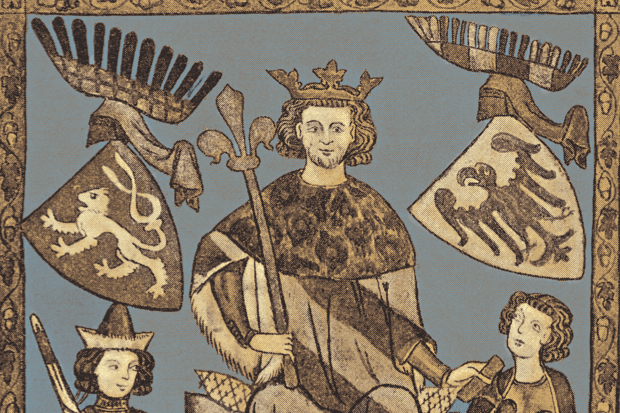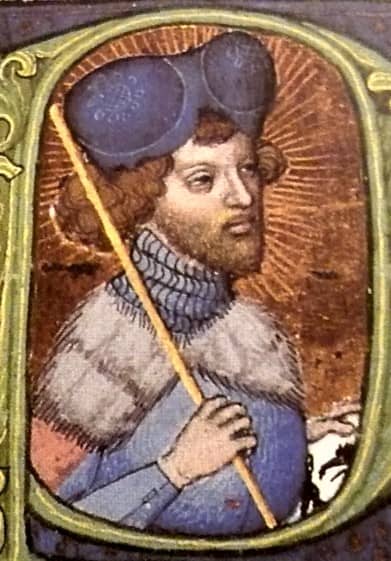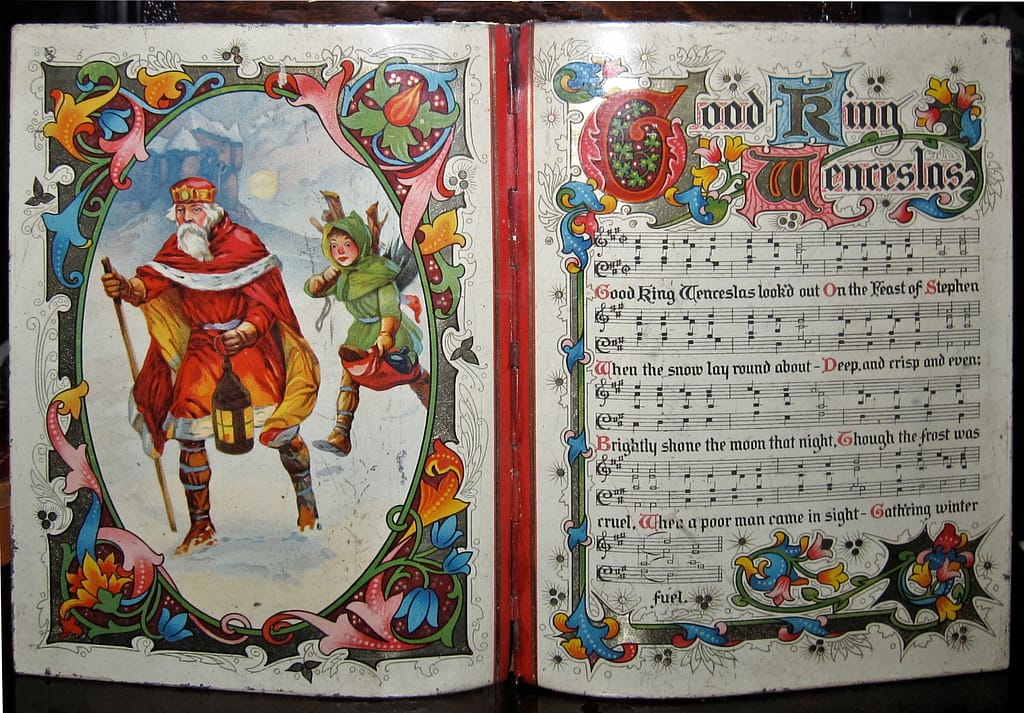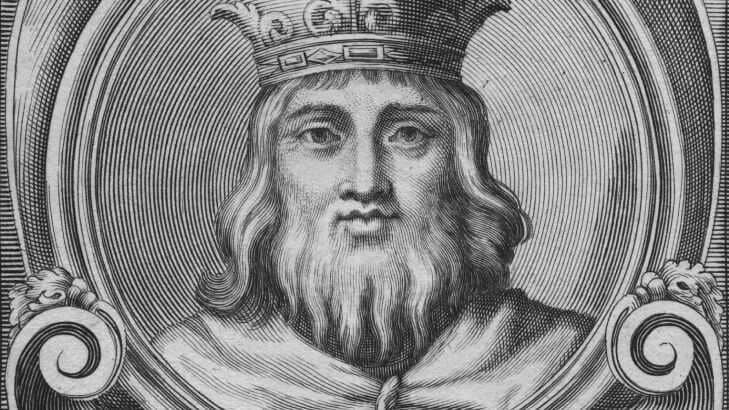Good King Wenceslas Story
King Wenceslaus (later spelled Good King Wenceslas) stands out among one of the most memorable old Christmas Carols. Though the carol was composed by noted songwriter and priest, John Mason Neale, the song is based less on a writer’s inspiration than on historical fact. King Wenceslaus was a real member of European royalty, a ruler who daily touched his subjects with Christian kindness and charity. For many in the Dark Ages, this king was the role model for Santa Claus. Today, over a thousand years after his death, King Wenceslaus remains a role model for Christian people everywhere.
The son of Duke Borivoy of Bohemia, Wenceslaus had the good fortune to be raised by his grandmother, Ludmilla. Ludmilla was a devoted Christian woman who taught her grandson the meaning of faith, hope, and charity. Wenceslaus took his grandmother’s lessons to heart, and in 922, when Duke Borivoy was killed in battle, the youngster seemed ready to put what he had learned into action. At the tender age of fifteen Wenceslaus, just a few minutes older than his twin brother, Boleslaus, was made the leader of Bohemia.
As the young duke attempted to guide the troubled nation, his mother. Drahomira, and his brother, Boleslaus, instituted a pagan revolt. They assassinated Ludmilla as she prayed, then attempted to overthrow Wenceslaus. The teen took charge, put down the rebellion, and in an act of Christian kindness, expelled his mother and brother rather than executing them. The tiny nation was amazed that the boy would react with such great mercy.
With the wisdom of Solomon, the young duke set up a nation built on true justice and mercy. He enacted laws in the manner he thought would best serve his Lord. He even journeyed out into the country seeking insight as to what his people needed. When possible, he shared everything from firewood to meat with his subjects. He took pity on the poor and urged those blessed with wealth to reach out to the less fortunate. In large part due to Wenceslaus’s example, a host of pagan peasants turned to Christianity. It was a revival unlike any had ever seen in the country.
When Wenceslaus married and had a son, all of Bohemia celebrated. Peasants and powerful landlords sought the man out, offering their prayers for long life and happiness. With a smile on his face, the leader assured them that he was praying for their happiness as well. In the years that followed, the duke and his subjects continued to share both their prayers and their blessings with one another each day. Rarely had a leader been as universally revered as was Wenceslaus.

And Wenceslaus loved Christmas. Centuries before gift giving became a part of the holiday tradition, the young leader embraced the joy of sharing his bounty with others. Inspired by a sincere spirit of compassion, each Christmas Eve the duke sought out the neediest of his subjects and visited them. With his pages at his side, Wenceslaus brought food, firewood, and clothing.
After greeting all in the household, the duke would continue to the next stop. Though often faced with harsh weather conditions, Wenceslaus never postponed his rounds. Like a tenth century Saint Nick, the kindly young man made the night before Christmas special for scores of families. For many a Christmas Eve visit from the duke was an answered prayer and a special reason to celebrate the birth of Jesus.

In 929, when he was just twenty-two years old, Wenceslaus was on his way to church for his daily prayers. As he greeted his subjects and took time to ask about their health, the warm look on the man’s face assured each of them that he cared deeply about their welfare. Smiling and shouting greetings, he continued to the chapel.
Just before entering, he heard a familiar voice. Turning, he must have been surprised when his brother greeted him. As a confused look crossed the Duke’s face, Boleslaus’s confederates ran up to Wenceslaus and stabbed him. Falling to his knees on the church steps, the dying ruler looked up and whispered, “Brother, may God forgive you.” Then he died.
It was a group of powerful pagan leaders who had supported Boleslaus’s overthrow of Wenceslaus. Amazingly, when the young man realized what he had done, the new duke turned away from his colleagues and embraced the faith that had guided his brother’s life and rule. Though he had planned the revolt that had killed his twin, it was Boleslaus who sustained the legend of Wenceslaus. Thanks to the man who killed his brother, the Crown of Wenceslaus became the symbol of the Czech nation.

Good King Wenceslas: John Mason Neale – Writes the Song
John Mason Neale closely identified with Wenceslaus in that he, too, reached out to saint and sinner alike. Though often rebuked by Christians, Neale constantly tried to reform prostitutes, thieves, and even murderers. Any man or woman who ventured into his path felt the Englishman’s loving touch.
When not involved in his mission outreach, Neale spent a great deal of time reviewing ancient Latin songs and text, often translating them into English for use in church services. One of the stories he came across was the biography of Wenceslaus.
Sensing that the Duke would make a wonderful role model for children, Neale rewrote the old tale in verse form, making the Duke a King, and matching his lyrics to a Latin melody, “Tempus adest floridum.” It now seems ironic that Neale’s Christmas carol would be sung to a tune that when translated meant “Spring has unwrapped her flowers.” Yet because Wenceslaus brought his poorest subjects a breath of fresh air and warmth to the darkest winter days, perhaps Neale’s choice was no accident.
When published, “Good King Wenceslas” quickly became a holiday favorite in Europe. By the last part of the nineteenth century, it was sung throughout the United States as well. This carol was largely responsible for making the legend of Wenceslaus known throughout the world, as it touched upon the bohemian saint’s example of faith, hope and charity. Suddenly the symbol of Czech independence became the crown jewel of Christian living.
One of the most telling facets of the Duke’s legendary life can be found in the final verse of “Good King Wenceslas.” In the carol, the King reminds his page that when a person is alone, life is dark and bleak. But when a person reaches out to others – like Christ reached out to those in need – then that person never walks alone. Christ and those who have been touched by kindness are there to make each step of the journey easier and brighter. Just as the page’s walk was made easier by following in the King’s footsteps, so the King’s way was made easier by following in the steps of Christ.
Wenceslaus and Neale both held positions of importance. Either could have chosen to be served by others, yet each instead devoted their lives to service. Both understood the tenants of faith, hope, and charity and throughout their lives reached out to others with compassion and love. Now the carol “Good King Wenceslas” reminds the world that the spirit of Christmas giving didn’t begin with Santa Claus, nor should it end there. It can be alive in all who choose to give with love and live by faith.
Good King Wenceslas Piano
For More Information about King Wenceslaus, Follow this Link…
Wenceslaus I, Duke of Bohemia – Wikipedia


